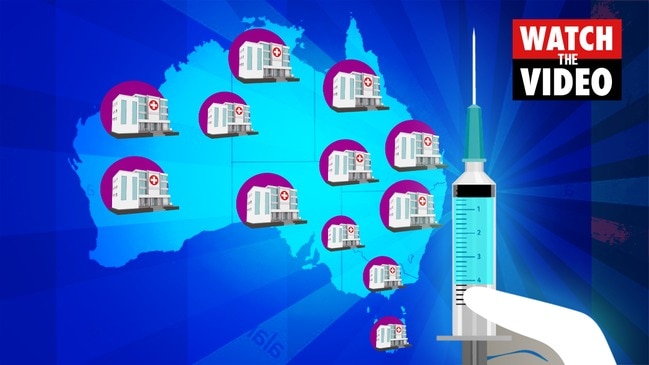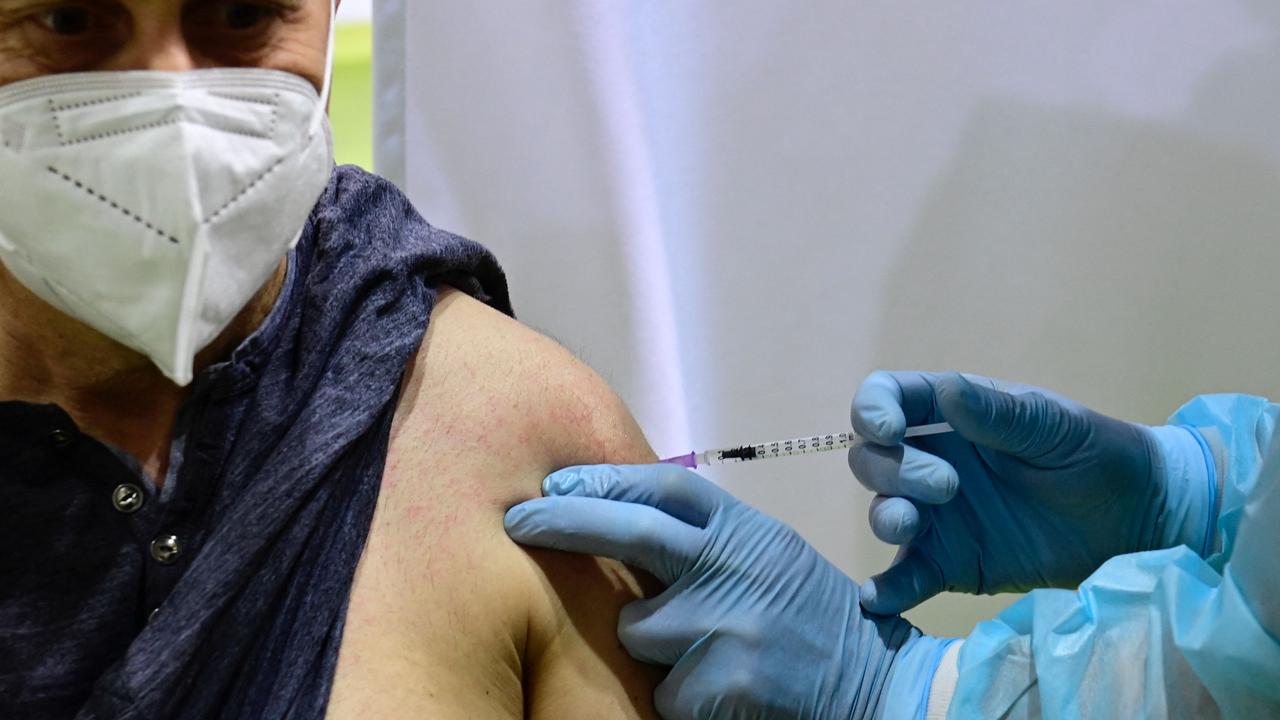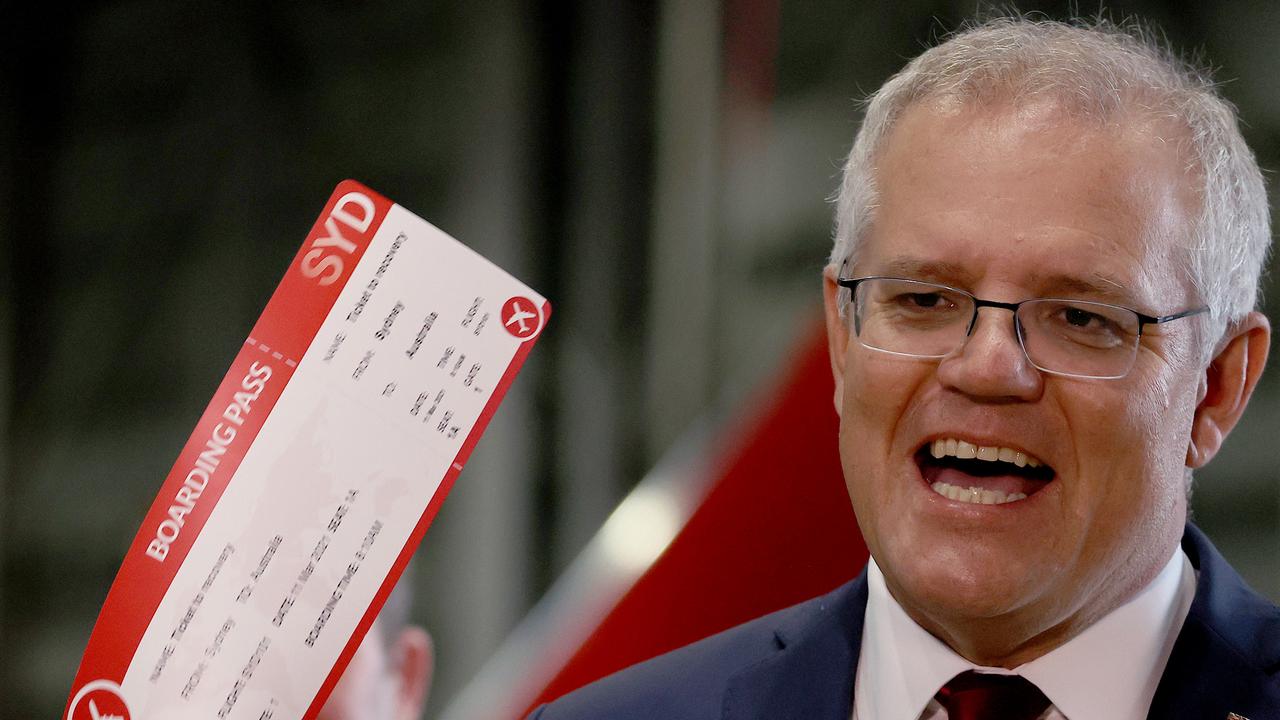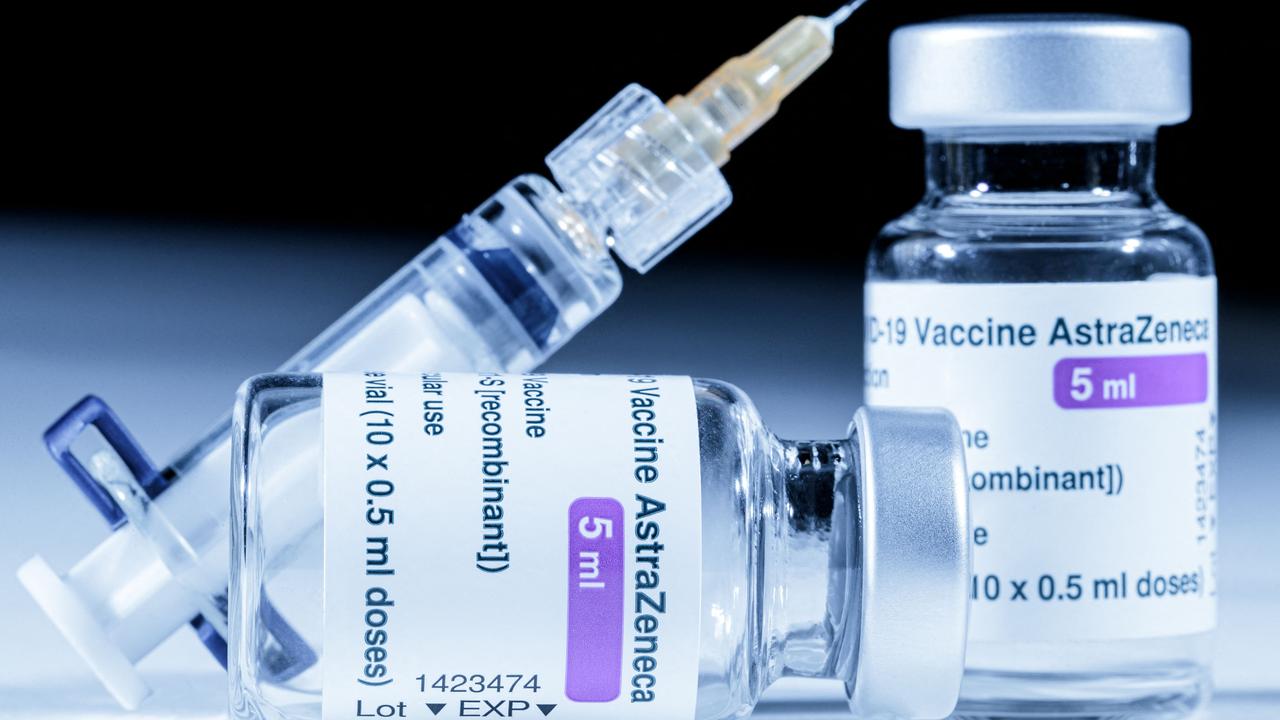Australia’s vaccine rollout faces delays as fears over AstraZeneca vaccine emerge
It’s been three weeks since Australia’s COVID-19 vaccine rollout began and experts say more transparency is needed.

The rollout of the coronavirus vaccine in Australia has been far from smooth and experts say there needs to be more transparency about how it’s going to be ramped up.
On Friday, Prime Minister Scott Morrison said around 150,000 vaccine doses should be administered by the end of this week, three weeks after the first jabs were delivered.
However, this falls well short of the 80,000 vaccinations a week the government had been aiming at.
Early on, the program was derailed after a doctor accidentally gave two aged care residents four times the recommended vaccination dose, causing delays while checks were done and missing the target for 60,000 doses to be administered by the end of February.
Experts have previously expressed scepticism about the Federal Government’s goal to have all adults vaccinated by October, saying the ambitious target would require 200,000 people a day to be vaccinated, and this week authorities confirmed it probably won’t happen.
Health Department secretary Brendan Murphy told the Senate Select Committee for COVID-19 on Thursday it was unlikely Australia could meet the October target, partly because there needs to be a 12-week gap between the first AstraZeneca jab and the second dose.
Dr Murphy said all first doses would be delivered by October but conceded some people might not receive their second dose until mid-December.
“There may be some at the end of October that might have only had one (dose),” he said on Thursday.
“The great majority of people (will) have had two vaccines by then and everyone will have had one, and it’s a semantic difference where there are a small proportion who have to come back a little bit later for their second dose.”
Melbourne University clinical epidemiologist Professor Nancy Baxter said the slow pace so far may also be due to the logistics of contacting people among the Phase 1a group, including quarantine and hospital workers, to get vaccinated.
Authorities are responsible for approaching eligible workers and organising their COVID-19 vaccine appointments.
“I think requires a lot of organisation and IT infrastructure. My concern is whether this is fully functional yet,” Prof Baxter said.
“These people need to be reached and need to come in.”
Prof Baxter said the pace of vaccination was “really slow” at the moment.
“I think we all deserve to understand how the pace is going to be increased,” she said.
“We have to go from 50,000 a week to 250,000 a week so we have to have a plan to get us there. They probably do have a plan but they need to be transparent about it.”
RELATED: PM defends sluggish vaccine rollout saying elderly won’t be ‘herded into tents’

Prof Baxter said some people who are part of the Phase 1a group may also be reluctant to get the AstraZeneca vaccine, which looks to be less effective than the Pfizer version.
“If you are a quarantine worker, you are really putting yourself on the line, you can understand they might not want to get a vaccine that’s less effective,” she said.
“But if Pfizer is not on offer, you should still get the AstraZeneca. You are better off with good protection, not waiting for great protection.”
Australia has only received about 400,000 doses of the Pfizer vaccine but has about 700,000 doses of the AstraZeneca version. It will also manufacture its own AstraZeneca vaccines with production eventually ramping up to about one million doses a week.
Prof Baxter said more Pfizer doses may become available if the United States manages to vaccinate all Americans by mid this year as President Joe Biden has flagged.
Mr Biden announced last week the US should have enough vaccine supply for every American by the end of May, two months sooner than expected. It’s hoped this will allow small groups to gather for Fourth of July celebrations.
“Once the US has been vaccinated, this will then open up a lot more supply,” Prof Baxter said, as the US is the manufacturing hub of both the Moderna and Pfizer vaccines.
RELATED: Should you wait for a better vaccine?
HOPES FOR OPEN BORDERS
The Prime Minister said on Thursday authorities were working towards getting international borders open by the end of October once Australia’s adult population had been vaccinated.
“That’s our hope and that’s our expectation,” he told reporters.
Even if many Australians do only get one jab by October, this could still leave the country in a strong position to open up its borders.
Deakin University epidemiologist Professor Catherine Bennett said evidence was showing people were still getting good protection after their first jab.
“It looks like it is providing about 70 per cent protection against getting the disease, after a few weeks (of getting the first jab),” she said.
Even if people do get infected, they have a lower viral load and are less likely to get a serious illness or pass it on.
She said decisions could also be made once those most vulnerable in the community were vaccinated, along with those most likely to spread the virus.
“Some workplaces are higher risk, such as aged care workers or meatworks, where there have been outbreaks,” she said.
“If you can dismantle the virus pathways into the community by targeting those workplaces where it spreads quickly, as well as those such as disability special accommodation where it can cause devastation — if we can protect those — we can have a conversation (about opening up) before all the population is protected.”
However, Prof Bennett said it was difficult to predict how the rollout might unfold, especially among the broader community.
RELATED: Multiple nations suspend AstraZeneca vaccine jabs

She said those being vaccinated now in the Phase 1a group were a “captive audience” and authorities knew where they lived or worked so they could be signed up easily.
Once the program moves on to others in the community, the pace will be harder to predict.
“Hopefully the vaccine hesitancy wears off and people come forward to get vaccinated as it will mean less border closures and lockdowns,” she said.
“Hopefully this will motivate people — the younger people and those at lower risk — to come forward at the tail end of the program.”
Prof Baxter though, has warned about the realities of opening up the country.
“It’s not clear if children will be vaccinated by October as we still need studies to show it’s safe,” she said.
“If we open up and if COVID starts to circulate, which it will if we open up, the people who get COVID are going to be kids.
“Most are going to be fine but not every single kid will be fine.
“Opening up, people have to understand what that means.
“I don’t think we can safely open until everyone is vaccinated, including children, and it’s hard to think that will happen by the end of the year.”
SAFETY FEARS OVER ASTRAZENECA VACCINE
Other problems also emerged this week that could cause headaches for authorities.
This week Italy blocked a shipment of 250,000 doses of the AstraZeneca vaccine to Australia, backed by the European Union.
However, just days later Italy, along with other European countries, suspended or banned some doses of the AstraZeneca vaccine due to blood clot fears.
It followed the discovery of a 49-year-old nurse in Austria who died of severe blood coagulation days after receiving the AstraZeneca shot, causing Austria on Monday to suspend the use of that particular batch of vaccine named ABV5300.
This prompted other countries to follow but then Denmark, Norway and Iceland on Thursday went further, suspending entirely the use of AstraZeneca’s vaccine.
Italy’s regulator also suspended use of a different batch ABV2856, and this prompted Romania to also withdraw over 4200 doses from that batch.
Prof Bennett said it was likely the blood clot would be found to be a coincidence, pointing out there had only been 22 cases among three million vaccinated.
“Blood clots are not uncommon,” she said.
She pointed out that the vaccination program was being rolled out among older people first and the amount of cases found were reasonable to expect within that time frame.
“It’s important that people don’t overreact, this is a sign that the system is working and we’re being extra safe,” she said. “What’s happening is that we’ve got the eyes of the world on these vaccines.”

AUSTRALIA’S STRINGENT SAFETY STANDARDS
Prof Bennett said the AstraZeneca vaccine is unlikely to be proved unsafe because it had already gone through rigorous trials.
If a problem is identified, it’s more likely to be something wrong with a particular batch of the vaccine.
“This is the reason why batch testing is so important,” she said.
Australia has committed to testing every batch of vaccine given to Australians, whether it is made overseas, or in the country.
Even the flu vaccine doesn’t have testing of every batch, Prof Bennett said, but this was being done with the COVID vaccines to ensure the safety of every jab in Australia.
It’s also important to note Mr Morrison has confirmed the approval of the vaccines in Australia were not “emergency” approvals, as has happened in other countries. They have been given full and formal approval, which means the Therapeutic Goods Association (TGA) went through its usual process for approving new drugs.
Mr Morrison said Friday he wasn’t concerned about the reports overseas about blood clots and that Australia’s rollout won’t be suspended.
He also defended the delay in the rollout saying Australia was supposed to get 3.8 million AstraZeneca doses in these early weeks but had so far only got about 700,000.
Mr Morrison said another 1000 GPs will be added to the system over the next week, pushing up the numbers to around 4000 who will help to ramp up the vaccination program.
The first doses of the AstraZeneca vaccine produced in Australia are also expected to begin rolling out by the end of this month, with production expected to be as high as one million doses a week.




